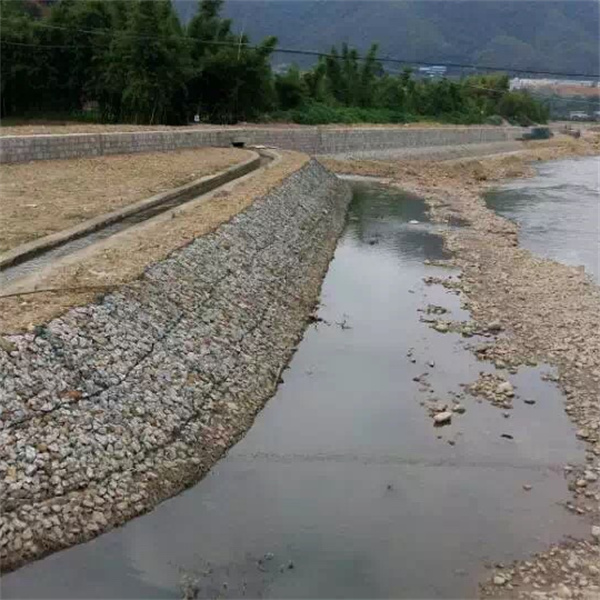Oct . 18, 2024 15:01 Back to list
Durable Wire Mesh Solutions for Gabion Basket Construction and Design
Wire Mesh for Gabion Baskets An Overview
Gabion baskets are versatile structures used in various civil engineering and landscaping applications, designed to provide stability, support, and aesthetic appeal. These baskets, typically filled with rocks, stones, or other materials, serve multiple functions, including erosion control, retaining walls, riverbank stabilization, and decorative landscaping features. At the core of a gabion basket’s effectiveness is the wire mesh used for its construction. This article explores the significance of wire mesh in gabion baskets, discussing its types, properties, and uses.
Understanding Gabion Baskets
Gabion baskets are wire mesh containers that are filled with natural stones or concrete. They are often used to form walls or barriers, providing a robust solution to soil erosion and other environmental challenges. As flexible structures, gabions can adapt to various terrains, making them ideal for use in challenging landscapes. Some common applications of gabion baskets include supporting roadway embankments, creating decorative garden features, and controlling riverbank erosion.
The Importance of Wire Mesh
The wire mesh acts as the framework for gabion baskets, holding the filled materials in place while allowing for drainage and vegetation growth. The quality and type of wire mesh significantly affect the performance and longevity of the gabion baskets.
Types of Wire Mesh
1. Galvanized Wire Mesh This is one of the most common types of wire mesh used in gabion construction. The wires are coated with zinc, providing excellent corrosion resistance, which is vital for durability in outdoor settings. Galvanized wire mesh is known for its strength and performance, allowing it to withstand harsh weather conditions and physical stresses.
2. PVC Coated Wire Mesh In situations where aesthetics are essential or additional corrosion resistance is needed, PVC-coated wire mesh is a popular option. The PVC coating gives the wire a more visually appealing finish and further protects it from environmental factors, such as rust and UV degradation.
wire mesh for gabion baskets

3. Stainless Steel Wire Mesh For projects requiring superior strength and resistance to corrosive conditions, stainless steel wire mesh is an ideal choice. Though more expensive, its longevity can justify the investment, particularly in marine or chemically aggressive environments.
Properties of Wire Mesh
The wire mesh used in gabion baskets should possess certain properties to ensure optimal performance
- Durability The wire must resist rust, corrosion, and wear to maintain the structural integrity of the gabion over time. - Strength The mesh needs to withstand the loads imposed by the filled materials and external forces, such as soil pressure and water flow. - Flexibility A good wire mesh should have some flexibility to accommodate movements due to shifting soil or water erosion, thus minimizing the risk of failure.
Applications of Gabion Baskets
Gabion baskets, constructed with robust wire mesh, are employed in a variety of settings
- Erosion Control Placed along riverbanks or shorelines, gabion baskets help absorb the impact of wave action, thereby preventing erosion. - Retaining Walls Their strength and stability make gabion baskets suitable for constructing retaining walls that support elevated terrains. - Landscaping Architects and landscape designers often use gabions as aesthetic features in public parks or private gardens, adding texture and visual interest to the environment.
Conclusion
Wire mesh is a critical component of gabion baskets, influencing their effectiveness, durability, and aesthetic appeal. By understanding the types and properties of wire mesh, engineers and designers can select the appropriate material for specific projects, ensuring that gabion baskets not only fulfill their functional roles but also enhance the landscape. As the demand for sustainable and resilient construction solutions continues to grow, gabion baskets utilizing quality wire mesh stand out as a practical choice in modern engineering and landscaping practices.
-
HESCO Gabion Baskets for Coastal Erosion Prevention
NewsAug.22,2025
-
Longevity and Durability of River Rock Gabion Walls
NewsAug.22,2025
-
How to Integrate Gabion 3D Walls in Urban Planning
NewsAug.22,2025
-
Reno Mattress Gabion Applications in Civil Engineering
NewsAug.22,2025
-
How to Install Wire Mesh for Gabion Baskets Properly
NewsAug.22,2025
-
Best Materials for Filling a Chain Link Gabion
NewsAug.22,2025
-
Wire Mesh Thickness Impact on Gabion Wall Load Bearing
NewsAug.12,2025






